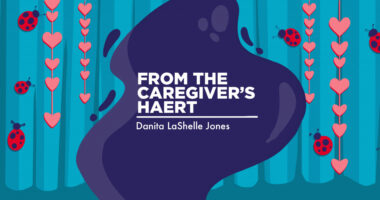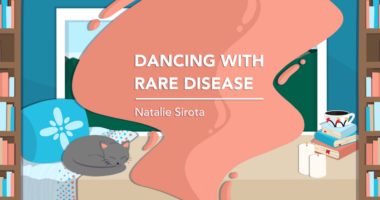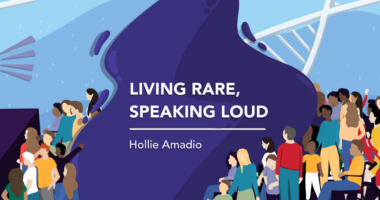How I’m enduring my dual battles of body and mind
I live with hereditary angioedema, multiple sclerosis — and depression

Some days, I wake up and immediately feel the weight of my own body, as if my bones are made of lead. Other days, I wake up with my mind racing before I’ve even had the chance to open my eyes.
Living with hereditary angioedema (HAE) and multiple sclerosis (MS) is an unpredictable roller coaster, and no amount of planning can fully prepare me for the toll it takes — not just on my body, but on my mind and my role as a mother.
When my mind is not my friend
Depression has woven itself into my existence, a constant shadow that feeds off my limitations. Although I know past traumas and everyday life play a role, a lot of the episodes I slip into stem from living with chronic illness, from feeling inferior and helpless in a world that demands strength and resilience. I see other moms running, playing, showing up for every moment, and I wonder, why can’t that be me? Why does my body betray me, forcing me to sit on the sidelines while life moves on without me?
Parenting is challenging on its own, but parenting while battling chronic illness and depression? It’s a constant test of endurance, patience, and self-forgiveness.
I try to hold myself accountable, to push through the bad days, but sometimes — actually, quite often — I fail. Sometimes the fatigue is so crushing that making breakfast for my children feels like an insurmountable task. Other times, the pain and swelling from an HAE attack make it impossible to even hold them in my arms.
Then there’s the mental aspect: the guilt, the frustration, the internalized belief that I should be doing more, being more. The moments when I look at my children and wonder if they’d be better off with a mother who wasn’t so … broken.
I know my children see it. They see when I struggle to get out of bed. They see the forced smiles, the moments when I sit on the couch, utterly drained, and tell them I just need a few more minutes to rest. I worry about what message that sends. Do they think I don’t care? That I don’t want to play with them? Do they resent the way my body betrays me?
I try to overcompensate when I feel well. On my good days, I force myself to be “normal.” I throw myself into being the “fun mom,” making up for lost time with laughter, movie nights, and spontaneous outings. Other times I’ll even go out with friends.
But those good days are fleeting, and the crash that follows seems inevitable. It’s a cycle I haven’t quite figured out how to break. And when the depression creeps in, it tells me that the good days don’t count, that my kids will only remember the moments I wasn’t enough.
Battling my depression complicates everything. It whispers cruel lies in my ear, telling me I’m failing, undeserving of love, that my children deserve better, that I’m a burden. The rational part of me knows that isn’t true, but when I’m deep in it, it’s hard to see past the fog.
I’ve learned to give myself grace
Not being “normal” doesn’t make me less than. I have to accept that some days, my best might not look like much, but it’s still my best. I’ve had to redefine what being a “good mom” means, and it doesn’t mean always being physically present or never needing help. It means showing up however I can, being honest about my struggles, and teaching my children that strength isn’t about never falling; it’s about finding a way to get back up.
Maybe I won’t always be the mom running alongside them, racing up playground slides, or chasing them through the yard. But I will always be the mom who loves them fiercely and shows them that even when life is hard, we keep going. They’re seeing that depression doesn’t mean defeat, that strength comes in many forms, and resilience is built in the moments when we refuse to let it define us.
And one day, when they face their own struggles, I hope they remember not just the times I stumbled, but the times I stood back up. Because if they can learn that, then maybe, just maybe, I’ve done something right.
I know I’m not alone. I know others especially in the rare disease and HAE community carry this same weight, feeling isolated and consumed by their battles. If you’re reading this column and you feel that same heaviness, please know: I see you. You are not failing. You are not alone. If just one person reading this feels less isolated, then sharing my struggle is worth it.
Note: Angioedema News is strictly a news and information website about the disease. It does not provide medical advice, diagnosis, or treatment. This content is not intended to be a substitute for professional medical advice, diagnosis, or treatment. Always seek the advice of your physician or other qualified health provider with any questions you may have regarding a medical condition. Never disregard professional medical advice or delay in seeking it because of something you have read on this website. The opinions expressed in this column are not those of Angioedema News or its parent company, Bionews, and are intended to spark discussion about issues pertaining to angioedema.








Leave a comment
Fill in the required fields to post. Your email address will not be published.